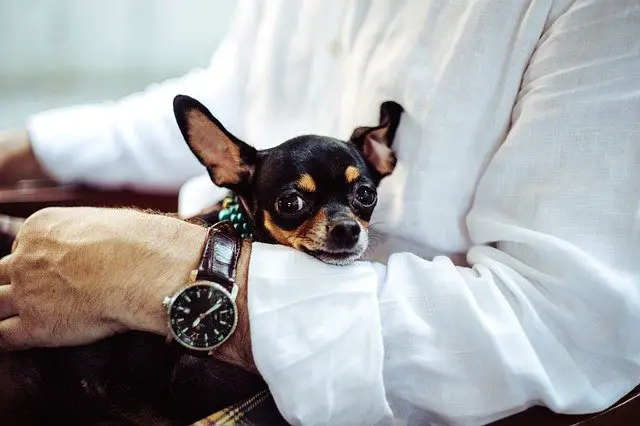
Canine ethology studies your dog’s behavioral problems and attitudes. An ethological examination could solve your pet’s bad habits. Thanks to canine ethology, some inappropriate dog behaviors can be resolved.
Ethology is a specific area within behavioral biology that is devoted to the study of animal behavior. During an ethological visit, the ethologist analyzes the state of health, habitual behavior, lifestyle and routine of each animal.
The theoretical approach and practices derived from ethology attach particular importance to the instinctive behaviors of each species and how they can be modified or improved through education.
To be an ethologist, first of all it is necessary to have a degree in veterinary medicine . That is, ethologists are veterinarians who regularly supplement university studies with specializations in this branch of behavioral biology.
At present, canine ethics – dedicated to the study of dog behavior – is the most advanced and requested part by professionals. There are many veterinarians who choose to specialize in ethology to broaden their knowledge of dog language and behavior.
In this article we will talk about canine ethology, a branch of behavioral biology dedicated to the study of dog behavior, mainly with regards to instinct. Read on!
What should you know about canine ethology?
It is not news that the man wants to know more about “their best friend”. For several centuries, canine behavior has been analyzed and compared with the actions of its closest ancestor, the wolf.
Observing a dog when it sleeps, when it plays or when it moves in the park goes beyond discovering this habits and tastes and also serves to offer them what it needs and anticipate their reactions.
Canine ethology is the name given to a branch of biology dedicated to the analysis and description of dog behavior. Try to explain why he does things rather than others and if it has habits in common with others of their kind.
Veterinary science has always been concerned with comparing the behavior of wolves and dogs and it has been concluded that, although they are related, they are also different from each other. Because? Basically because dogs have adapted to living with humans.
Surely you have asked yourself a lot of questions about why your dog behaves in one way or another. The best way to answer is by relying on a canine ethology expert.
The help of a canine ethologist
An ethological visit serves to diagnose, recognize the causes and treat behavioral problems in pets. A canine ethologist, for example, will try to know why a dog has certain behavioral disorders and then try to help him overcome them.
If we feel that our pet’s behavior is unacceptable or that it has behavioral problems, instead of having them go for a “general” vet visit, we should consult a canine ethologist.
The professional will first analyze the animal and then tell us if what it does is “normal” – from the point of view of the “dog” – or not. A canine ethologist will also be able to indicate when that action appears, with what frequency and intensity, and will provide you with the tools to reduce or modify it if it deems it necessary.
You should keep in mind that most pet behavior problems have similar origins: poor education, little or no socialization as a puppy, or the use of punishment systems.
There may also be dogs with mental or social problems that do not learn despite the efforts of their owners or a trainer, perhaps due to a previous trauma or in a kennel. In these cases it will be even more necessary to consult a canine ethologist.
What types of problems are solved by canine ethology? Although several issues can be addressed, this branch of behavioral biology focuses on:
- Aggression.
- Fears.
- Fatigue.
- Separation anxiety.
- Possessiveness.
- Socialization problems.
- Jealousy.
- Stereotypies (repetitive actions such as biting the tail).
- Coprophagia (eating one’s own excrement).
Once the ethologist performs a specific analysis of the animal’s behavior, it will indicate whether it is a problem or something “instinctive” and “normal” of the dogs.
Choosing a good canine ethology expert is not an easy task, as in the case of a veterinarian, but in this case their work is not yet so widespread and not everyone knows about it. Therefore, we cannot always choose them on recommendation.
An ethologist is not always the solution to the behavioral problems of the animal, but the truth is that canine ethology can offer us a different perspective to understand what happens to our pet. Each dog will act differently depending on the treatment and techniques used, so there is no telling how long it will take to recover or change its behavior.
How can an ethological visit help your dog?

The help provided by an ethologist basically depends on the specific needs of each animal. If your dog exhibits a behavioral problem, we recommend that you see an ethologist as soon as possible.
As with physical illnesses, behavioral disorders also tend to have a better prognosis when diagnosed early.
Although it reveals high success rates, the effectiveness of ethological treatments does not reach 100% of cases. Unfortunately, there are very complex behavioral problems that can hardly be completely cured or reversed.
In fact, working with an ethologist will be essential in controlling these behaviors and allowing a dog to enjoy a more balanced life.
All of this reaffirms the importance of preventing behavioral problems in pets. The best prevention for such behavioral disorders is healthy, positive, and well-targeted education.
If you do not have the time or the ability to educate your pets through positive reinforcement, the best thing to do is to consult a professional educator and have an ethological examination for your dog.
| Dog Behavior | Dog Food and Nutrition |
| Dog Training | Dog Grooming |
| Dog Health | Tips for Dog Owners |
| Puppies | Dog Breeds |
| Dog Adoption | Travel with Dogs |



